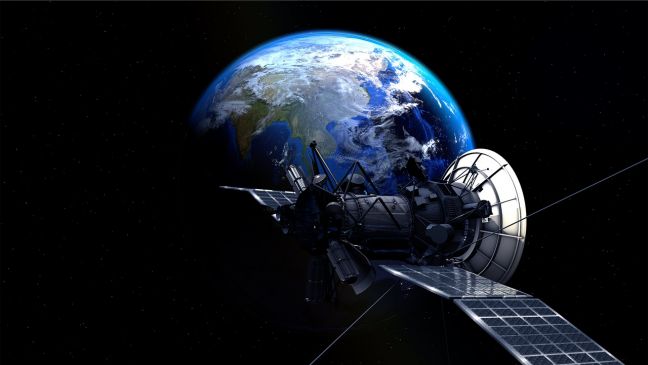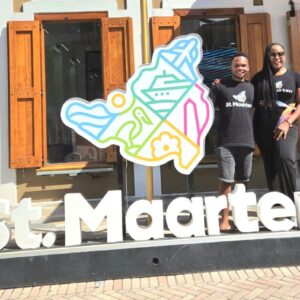
Smart island paradise in the space age of the 21st century
I like out of the box thinking. When that kind of thinking includes the keywords smart city, paradise island, St. Maarten and outer space, my mind is immediately on high alert. Then I know the writers are boldly going where no man has gone before. No man from St. Maarten that is.
Communications and PR specialist, Roddy Heyliger, writes in a commentary that the Government of St. Maarten continues to face financial challenges due to the damages caused by Irma and Maria almost two-years ago. As the rebuilding effort continues and hotels continue to come back online, as a country we need to step outside the box and explore other economic and revenue generating opportunities in order to become a smart island, he writes.
Roddy Heyliger goes on to explain in his column that the Smart City concept is a common term used due to increase urbanization, scarce resources and development pressures. Countries need to turn to smart innovations in order to make their cities more livable in order to accommodate growth. Building a smart city is the order of the day as according to the United Nations, two-thirds of the world’s population will live in urban areas by 2050.
Today, more than ever, Roddy Heyliger explains, we need to plan in a more strategic manner and look beyond rather than continuing to look within at the current business model. The current tourism-oriented economy will continue, and we must further enhance and develop it in a sustainable manner. The hotel infrastructure continues to rebuild back better. We have two new hotels (eg. Planet Hollywood) that are planned and will add additional hotel rooms to the current room inventory.
Some hotel properties won’t ever be rebuilt (eg. Summit Resort Hotel) while others are pending decision-making on rebuilding (eg. Westin at Dawn Beach). In the meantime, life goes on, but financial challenges within the public sector continue to create headaches for policymakers and financial independence of any nation is the ultimate goal.
Hence, economic diversification is the key and should be pursued now more than ever. Our country needs strategies that leads to sustainable economic growth, an expanded vibrant business sector, good job opportunities for St. Maarteners and a higher quality of life for all.
There are economic areas that the country should explore and pursue such as international business services/insurance-risk industries; a ship and aircraft registry; fintech/block chain technology; e-commerce/technology sector among others. Why can’t we pursue with private sector partners business solutions and scale them globally from St. Maarten?
Roddy Heyliger advises in his column that steps need to be taken today to establish a diversified business ecosystem leading to an economically and financially sustainable smart nation by 2030 that will be able to deal with the various global changes – including climate change.
For example, he writes, St. Maarten should explore the possibility of acquiring a Geostationary Orbital Slot for Satellites via the International Telecommunication Union (ITU) – it’s like renting real estate in the sky. Outer space, for the telecommunication sector is becoming more accessible to more actors in existing and emerging new industries.
Bermuda, an island nation similar in size in population compared to St. Maarten, has four satellite orbital slots – an area where satellites operate – which were allocated by the ITU to that island nation back in 1983. One slot hosted its first satellite in 2013.
A country of course needs the necessary legislative regulations such as a space law – in line with the Outer Space Treaty – in order to capitalize on satellite space slots, and the St. Maarten House of Parliament has a key role to play. The State of the Satellite Industry Report 2019 said the global space economy was worth more than 360 billion dollars in 2018 – a satellite industry that is worth more than 277 billion dollars with telecommunications being the biggest sector – and is forecast to become a trillion-dollar industry by 2040. The island of Jamaica is also working on developing a slot for commercialization.
The development of a Geostationary Orbital Slot for Satellites also has applications for aviation and shipping sectors – aircraft and shipping registry – through the use of surveillance or reconnaissance satellites.
Why not establish the ‘St. Maarten Space and Satellite Policy Advisory Group’ Roddy Heyliger asks, which can lead to the establishment of the ‘St. Maarten Space and Satellite Authority’ that would chart, manage and capitalize on the opportunities that exist in this area whereby country St. Maarten becomes a part of emerging space economies which translates into economic diversification and financial independence?



